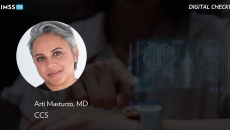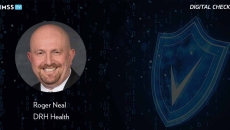Cybersecurity and Privacy
Dr. Arti Masturzo, chief medical officer at CCS, discusses the pros and cons of RFK, Jr.'s proposal for every American to wear a government-issued health monitoring device within four years, including concerns around device data accuracy.
Roger Neal, VP and COO at DRH Health, says that due to the complexities of the healthcare industry, "our goal right now needs to be to get neutral" rather than getting ahead of cyberthreat challenges.
Dr. Doug Fridsma, former ONC chief science officer and current chief medical informatics officer at Health Universe, discusses GPT-5, including HIPAA compliance, FDA oversight and potential risks for patients uploading healthcare data.
Organizations are applauding the goals of transparency and patient access to medical data.
Healthcare organizations are vulnerable to cyberattacks like phishing scams during IT upgrades and business restructuring. Security awareness is important during any changes, says Ven Auvaa, ArmorPoint's information security director.
A new study has looked into factors influencing doctors, chronically ill patients, and healthy persons to prefer one health application over another.
The investment will accelerate Nexus IT’s U.S. expansion and support acquisitions of culturally aligned MSPs in healthcare and other regulated industries.
HIMSS25
Independent accreditation is essential to ensure that health technology and health organizations are compliant with HIPAA, NIST and other standards, says Kathryn Ayers Wickenhauser, DirectTrust's chief strategy officer.
HIMSS25
While quantum computing will pose a threat to healthcare cybersecurity, Philip Bradley, HIMSS digital health strategist, says the INFRAM scale will align with cybersecurity frameworks as they adapt to a new quantum security model.
A strong asset and vulnerability management posture for all organizations – no matter the size – is the key to survival against ransomware attacks, says Katie Moussouris, founder and CEO of Luta Security.









